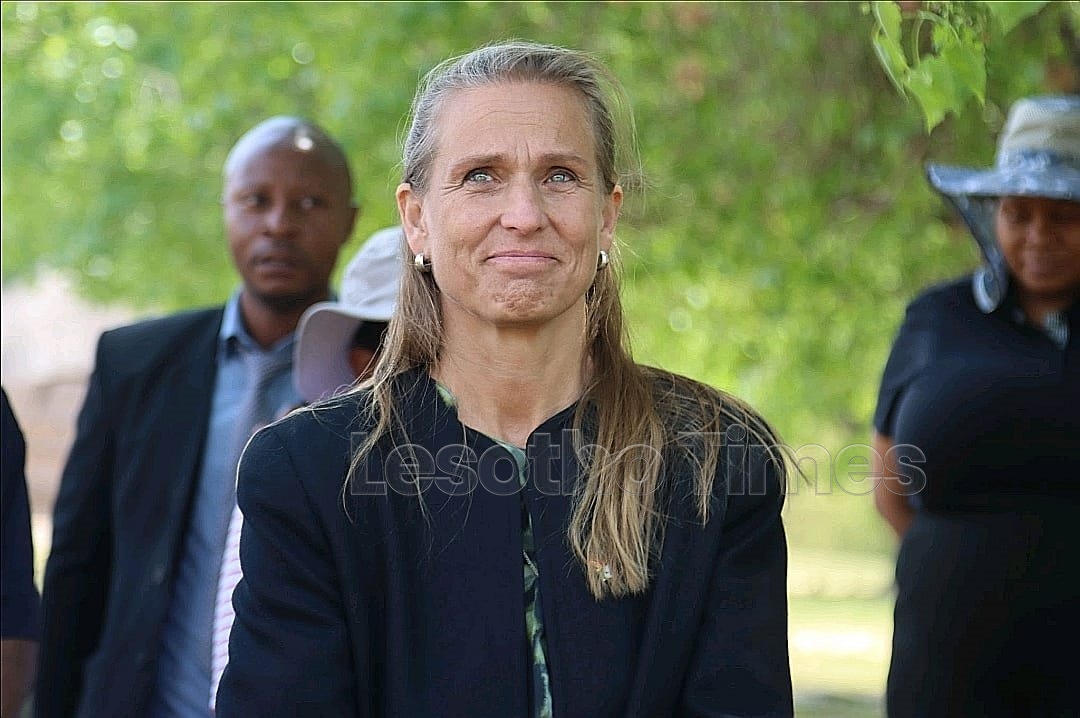MASERU — Joale Nkoale and his family in Peka, Leribe, about 60 kilometres north of Maseru, are still in shock.
His son, Ntsoeta Nkoale, 14, was battered to death two weeks ago by a neighbour who had been left to care for the teenager.
Ntsoeta was buried in Leribe last Saturday.
But for Joale and the rest of his family, they are still struggling to come to terms with the boy’s brutal death.
Nkoale told the Lesotho Times this week that his son was battered to death with a lebetlela stick, a potent traditional weapon used by Basotho.
The suspect, who is known to the family, has since been arrested by the police.
The suspect, it is alleged, had accused Ntsoeta of misplacing a key to a room they shared.
The deceased was working for the suspect as a herdboy.
On the fateful night on June 14, Ntsoeta had gone to visit his maternal grandparents a few kilometres away.
But before they could go to bed, the suspect came and asked Ntsoeta where he had put the key to the room.
“He claimed he had looked for it at the usual place they used to hide it and had failed to find it,” says Nkoale.
The suspect then asked Ntsoeta to come and help him look for the key.
He never returned home.
But his grandparents never suspected that something could have been amiss.
It was only in the following morning that they realised what had happened to their grandson.
Nkoale says he was shocked to learn of the attack on his son.
“When I got there I got the shock of my life. He had been beaten to a pulp.
“His whole body was covered in wounds. He was still alive then but could not talk to us.
“He had lost a lot of blood overnight. I just wondered what he could have done to be beaten like that. The intensity of the beating shocked us,” Nkoale says.
He says they rushed Ntsoeta to Teya-Teyaneng hospital, about 30 kilometres away.
“When we arrived at the hospital his condition deteriorated. He had lost consciousness.
“He was quickly attended to by doctors but nothing that was done could save his life. He died later that day.”
A post-mortem report revealed that Ntsoeta had suffered a fracture on his skull.
He also had fractures on the upper jaw, ribs and spine as well as a dislocated elbow.
“We are still wondering what our child could have done to be killed like a dog. We trusted that man.
“We thought Ntsoeta was more than safe with him. We regret ever letting him live with him.”
Ntsoeta’s shocking murder is not an isolated incident in Lesotho.
There have been numerous reports of domestic violence that have been reported in the local media over the past few months.
The magnitude of the domestic violence has been quite shocking.
For instance, last month, a woman was battered to death by her husband in Thaba-Tseka.
According to the police, the woman was beaten to death following a domestic dispute.
The husband was arrested and is still in police custody.
The stick that he used to assault his wife was confiscated and would be used in court as an exhibit, according to the police.
Numerous other cases of domestic violence go unreported, according to researchers.
Prominent lawyer and member of the Law Reform Commission, Moroesi Tau-Thabane, told a stakeholders meeting on domestic violence in Maseru last week that domestic violence was rife in Lesotho.
“Domestic violence is a serious problem in Lesotho which needs the government’s intervention by a specific and elaborate law [on domestic violence],” she wrote in the 29-page report on domestic violence.
The current laws are not comprehensive enough in terms of the procedure and the remedies they suggest, she argues.
“There is therefore need for promulgation of a law that will be comprehensive, simple to use even by lay complainants, at a properly trained forum that will provide speedy remedies,” Tau-Thabane wrote.
Tau-Thabane says domestic violence manifests itself in four categories — physical aggression, sexual abuse, emotional and economic.
She says in her report that “the Common Law recognises that acts of physical violence especially for assaults and or murder are criminal offences”.
But the law has serious limitations as most domestic violence cases “are regarded as private matters to be dealt with by the family”.
“The other problem is that the complainants who are in most cases women are usually reluctant to have their husbands taken to prison.
“They fear the attitude of the family, as such women may be ostracised for having taken their husbands to jail or she might consider the economic loss that she might suffer if the husband is confined,” she says.
At least 125 cases of domestic violence are reported in the country every week the majority of them in Maseru, she says.
She says the Child and Gender Protection Unit that was set up to deal with cases of domestic violence affecting children still finds its hands tied “and cries out for a specific law on domestic violence”.
Tau-Thabane said there is need for a specific law that can be used to fight domestic violence.
She said domestic violence has not been given serious priority by the authorities like other criminal offences.
“There is need for a special legislation which would deal with domestic violence,” Tau-Thabane told the Lesotho Times in an interview this week.
Speaking at the same meeting, Gender, Youth, Sports and Recreation Minister, ‘Mathabiso Lepono, said domestic violence had become a serious social problem that needed to be addressed urgently.
“Violence has ceased to be just a private problem and has become a social and public problem in urgent need of a solution,” Lepono said.
“Domestic violence is a serious assault on human dignity which is perpetrated in silence and often in homes behind closed doors,” she said.
“Even though we encourage restorative justice methods we strongly advocate that forgiveness should not be substituted for justice.
“In serious cases perpetrators should be punished for their deeds,” Lepono told the conference.







